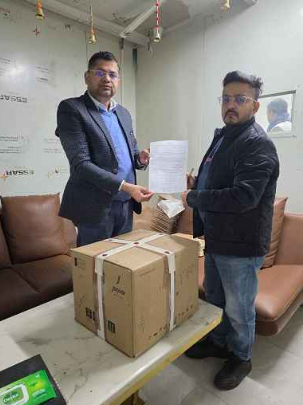
New Delhi: India’s efforts to reduce its dependence on China for crucial drugs have received a significant boost, with two domestic drug makers poised to commence production of the key antibiotic raw materials, penicillin G and clavulanic acid, this year.
This development is made possible by the government’s ambitious Production-Linked Incentive (PLI) scheme, designed to bolster domestic manufacturing of essential pharmaceutical ingredients, reported ET.
According to industry executives, the stage is set for Hyderabad-based Aurobindo Pharma and Mumbai-headquartered Kinvan to begin production of the key starting materials (KSMs) penicillin G and clavulanic acid, respectively.
The companies are expected to roll out their first batches in the coming months, marking a significant milestone in India’s pursuit of self-reliance in the pharmaceutical sector.
Penicillin G, a crucial input for several antibiotics, and clavulanic acid, used in manufacturing the widely popular antibiotic combination Amoxyclav (brand name Augmentin), have been imported from China for nearly three decades, as India ceased domestic production of these critical drugs.
Aurobindo’s state-of-the-art penicillin G plant, commissioned in Andhra Pradesh at a cost of Rs 2,400 crore, is expected to commence trial production this month, with commercial production following in the coming months. The facility boasts an impressive annual production capacity of 15,000 tonnes.
The government’s PLI scheme, announced in 2021, targets crucial fermentation products, including penicillin G, amino cephalosporanic acid 7-aca (used for making antimicrobial drugs), clavulanic acid (to treat bacterial infections), and erythromycin thiocyanate (anti-infectives).
The scheme aims to boost domestic manufacturing of active pharmaceutical ingredients (APIs) and KSMs while encouraging the export of these raw materials.
India’s pharmaceuticals industry, the third-largest in the world, has long been dependent on China for critical raw materials. The PLI scheme seeks to reduce this dependency and ensure an adequate domestic supply of bulk drugs and APIs, a focus that has become even more acute following the global supply disruptions caused by the COVID-19 pandemic.






